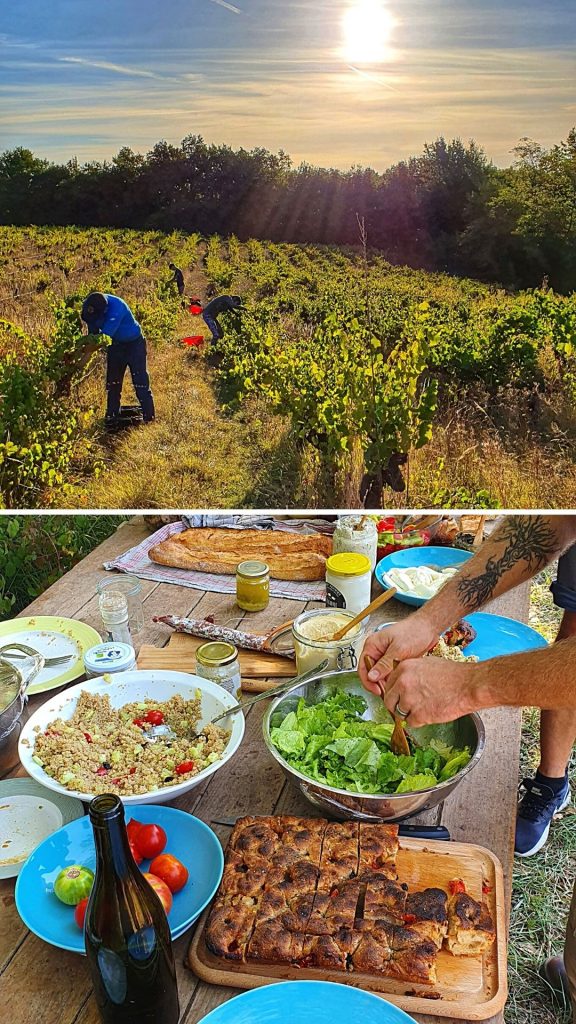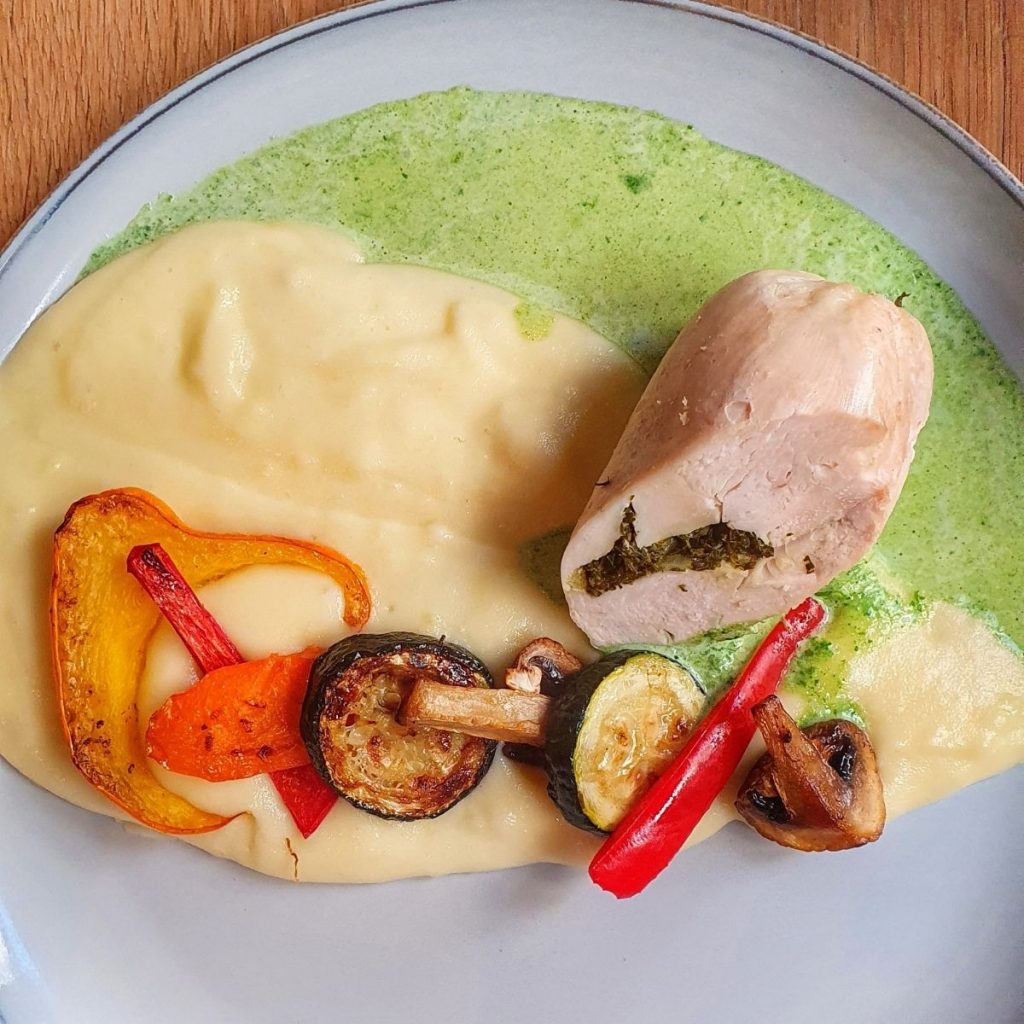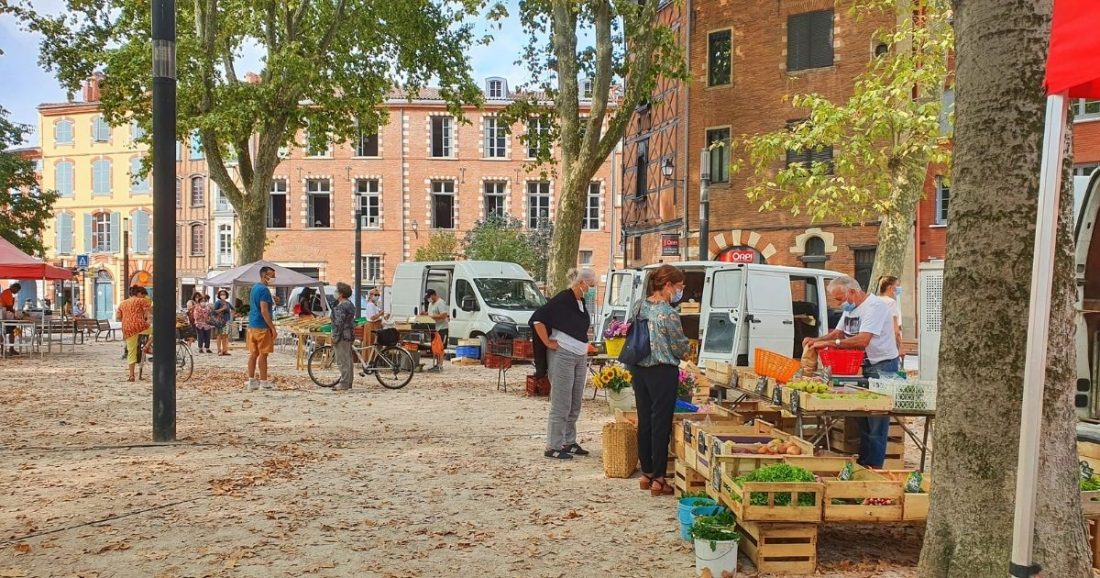October 2020: Foodie Things to Do in Toulouse
Let’s all take a moment to pat ourselves on the back for making it three-quarters of the way through 2020. Whew! The French saw the writing on the wall when they declared that 2020 was “wine-wine” (the French word for 20, “vingt,” is pronounced the same as the French word for wine, “vin”). Sometimes all you can do is open up a bottle in celebration of getting through another day, week, or month. It doesn’t hurt that I’m studying for the WSET level 3 wine certification, so it’s all in the name of “study.”
How are YOU doing? Here in Toulouse, we’re managing as best we can since being declared a “reinforced alert zone” in late September. Bars are required to close at 10pm, large events over 1,000 people are cancelled (including the Salon Vin & Terroirs that was scheduled for the end of October), public gatherings are limited to no more than 10 people, and indoor sports are prohibited. In Marseille, which was placed on “maximum alert,” the bars and restaurants have been closed for at least 2 weeks.
I don’t want to downplay the severity of the situation, because everyone should be taking it seriously and following the recommended guidelines. If you’ve been following me on social media, you’ll know that I had to isolate in my bedroom for a week after coming in close contact with someone who later tested positive for COVID (thankfully after 7 days, my test came back negative). Not what you’d call a fun experience, but the alternative – not taking it seriously and risk potentially infecting those around me – made the decision about what to do extremely simple. We all need to do what we can to slow the spread of the virus and prevent further closures of already-vulnurable businesses in the tourism, hospitality, sports, and culture sectors. So wear your masks, keep distancing, avoid large gatherings, and stay safe!
Events are still happening, but on a smaller scale and with health and safety adaptations. I was extremely impressed with the organization of the Toulouse à Table festival in September, who managed to pull off a socially-distanced cassoulet dinner in the Place du Capitole for over 1,000 people. Tables were well-spaced with people assigned to help seat groups in a very orderly fashion. Mask-wearing was mandatory when moving around and best-practices were being followed. Even though, this month, an event of this scale would not be permitted due to escalating restrictions, it felt like a victory to know that we can still participate in the things that we love while protecting ourselves and others.
À votre santé,

P.S. Don’t miss your chance to join my hands-on, interactive virtual workshops, French Cheese 101 and How to Build a Cheese Plate! The final dates of these workshops will be November 1 and November 7, so reserve your place now. After that, I’ll be moving to private, on-demand online workshops – so if you’re looking for a way to share France with distant friends, family, or colleagues, contact me for a quote!
Foodie Things to Do in Toulouse – October 2020
Please note: Due to the current health situation in Toulouse, events may be cancelled, postponed, or modified. All details were verified at the time of publication, but it’s a good idea to double-check the event links for updates before making plans to attend.
5 – 10 October – Octobière
The 5th annual edition of this beer festival is taking in local bars, restaurants, and shops, adapted to the current health situation. More than 20 breweries and over 100 beers will be featured during the week at various types of events such as meetings with brewers, tastings and pairings, tap takeovers and more. Facebook event page
7 – 10 October – les Off des Rendez-vous Effervescents de Limoux
Over 20 bars, restaurants, and wine shops in Toulouse invite the 5 AOPs of Limoux (only 87 km away from Toulouse) to show off their beautiful wines. Meet winemakers, taste the array of wines produced in this nearby region, explore pairings, and more at these events around town. Visit the event website for the full schedule.
15 – 18 October – le Fascinant Week-End by Vignobles et Découvertes
This weekend unites wine regions and winemakers from all over France to celebrate wine tourism, culture, terroir, and beautiful destinations. On offer are concerts, dinners, tours, activities, tastings, and more – over 400 different events in 31 wine destinations around France. Visit the event website for a complete list everything going on, searchable by location, type of activity, and date.
18 October – Garo’Bio
This annual fair is dedicated to all things organic and sustainable. You’ll find artisans, local products, tastings, demonstrations on sustainability, activities, music, and more. With the current health situation, it’s advisable to check the Facebook event page for updates and changes, as it could be affected by new decrees from the prefect.
What I’m Reading
What to do with leftover cheese: Three Cheese Tarte Flambée recipe (Taste of Toulouse blog)
We’ve all been there, left with little nubbins of cheese after a party, one of my online cheese workshops, or a particularly enthusiastic cheese-buying spree. That’s why my friend Cat provided us with the perfect cheese stash-busting recipe for a tasty cheese flatbread from Alsace where you can use whatever cheese you have on hand.
Top 10 Favorite French Cheeses (davidlebovitz.com)
And speaking of cheese, my friend and Paris food tour guide Jennifer Greco writes about her top 10 favorite French cheese for David Lebovitz. To date, she’s tasted over 400! The one on her list that I particularly want to try is the Hercule, a 50/50 goat & sheep’s milk tomme from the Pyrénées made by MOF Dominique Bouchait. Yum!
The push to win French butchering UNESCO status (thelocal.fr)
One young French butcher is on a campaign to have French butchering be included on UNESCO’s list of intangible artifacts of cultural heritage (alongside the French gastronomic meal, which was added in 2010). I tell many people on my tours that shopping for meat in France can be confusing because French butchers have an entirely different way of cutting up the meat to reduce waste, which results in very few English-equivalent cuts. “‘In a beef carcass, we’re going to come up with 40 different cuts… whereas others aren’t going to make the most of the meat’ and settle for just five or six pieces…”
Don’t call them Pét-Nat (Punch)
When I sold wine back in the US, “pét-nat” (short for “pétillant naturel,”) was becoming a big trend. So I’ve always been a bit confused about why I never hear producers from Gaillac, which is known for making wines in the méthode ancestrale, use that term – despite the fact that it is made in pretty much the same way. This article explores what’s in behind those names and the choices made by producers to honor the heritage behind their wines. “According to Florent Plageoles of Domaine Plageoles, a pioneer of natural winemaking in the southwestern French region of Gaillac, ‘The term ‘pétillant naturel’ was mainly created to categorize sparkling wines made with the ancestral method in regions where they didn’t historically produce those types of wines.’ Although he claims not to mind when people label his sparkling Mauzac Nature as a pét-nat, he’s also quick to highlight the significance of practicing the technique in a place like Gaillac, where it’s deeply embedded within the local heritage.”
Wine’s diversity issue starts with how we talk about the taste of wine (San Francisco Chronicle)
The second article this month about how language has power, this time in regards to how we describe tastes. As I study for my WSET 3 certification, which includes a tasting exam, I’m particularly aware of the fact that so many taste descriptors are centered on a European – and specifically French – palate. Elderflower, black or redcurrant, blackcurrant leaf, brioche, and marzipan are just a few of the flavors that I probably wouldn’t be able to identify outside of my experience of living in France (and I still couldn’t tell you if I blackcurrant leaf smells different from any other leaf). “It’s not surprising that French words dominate the American wine imagination; most of this country’s wine tradition is imported from France. But these terms carry considerable class baggage with them. Some of the most common wine descriptors refer specifically to food preparations from the annals of classical French gastronomy: pate de fruit (a jellied fruit candy), coulis (a fruit sauce), fleur de sel (very fancy salt). To understand these tastes, it’s not enough to enter the words into Google translate — it actually requires a lived experience of Michelin-starred dining.”
Le Burger Boom: What explains France’s ravenous appetite for hamburgers? (The Local France)
“Before 2012 in France, burgers were nearly exclusively found in McDonalds and Quick (two fast-food restaurants), according to Boutboul. Today the iconic recipe, born in Hamburg and popularized in the US can be found in a wide range of French restaurants – streetfood joints, traditional brasseries and even starred restaurants…Eighty percent of the 145.000 restaurants in France (this includes brasseries, cafés, high standard restaurants…) which have a burger on their menu say it’s a top sell, according to Gira’s statistics.” And speaking of burgers, a chef from Toulouse is participating in the French Burger Championship and his burger looks amazing.
Toulouse: The town hall extends the decree for the extension of restaurant terrances (ActuToulouse, in French)
In some good restaurant news we can use, the Mairie de Toulouse has announced that restaurant terraces/sidewalk cafes that were enlarged to allow more outdoor dining space due to COVID will be allowed to stay in place until December 31, 2020. Let’s keep our fingers crossed for nice weather this fall!
Around thirty Toulouse restos at half-price for two months (Le Bonbon)
From September 17 until November 17, around 30 Toulouse restaurants are participating in TheFork’s Return to Restaurants promotion by offering half-price deals. If your finances are tight due to COVID, this could be a good way to help you get out and try something new. However if you are able to, I’d encourage you to support the local restaurants that you love at their regular prices, as they’re looking at a grim winter ahead once it is too cold for comfortable outdoor dining and with possible shutdowns looming if our region can’t get the virus under control. How and where you spend your money has a direct impact on what businesses will be able to survive.
What I’m Eating
September had a lot of memorable meals – but not just in restaurants. I already mentioned the giant cassoulet dinner in the Place du Capitole. My other memorable outdoor dining experience in September was a vineyard-side meal during a day of helping a friend harvest his wine grapes near Gaillac. Food never tastes better than when you’ve been working all morning for it. And maybe I’m biased, but getting to drink the wine from last year’s harvest along with it was the perfect pairing!

I tried out the newly-opened Les Polinaires and was very impressed (and even more impressed when I found out that the two owners opened a restaurant and then got married a month later…whew!). I went for lunch and found their mid-day offerings (19€ for 2 courses, 2€ for 3 courses) to be a very good deal if you’re looking for a more refined, “gastronomic” option. Portions are not huge (plan on getting all 3 courses unless you’re not very hungry), but they pack a punch in terms of flavour and freshness. The roasted vegetables that accompanied my herb-stuffed chicken were beautifully-prepared and didn’t seem like an afterthought the way they often do with meat-based dishes in France. It’s easy to see that Les Polinaires is prioritizing local and seasonal ingredients. My dessert of panna cotta with figs was the perfect late summer/early fall end to a meal. Dinner menus start at 42€ and wine pairings are also offered.

Any questions about this blog or our Foodie Walking Tours in Toulouse? Please get in touch.



